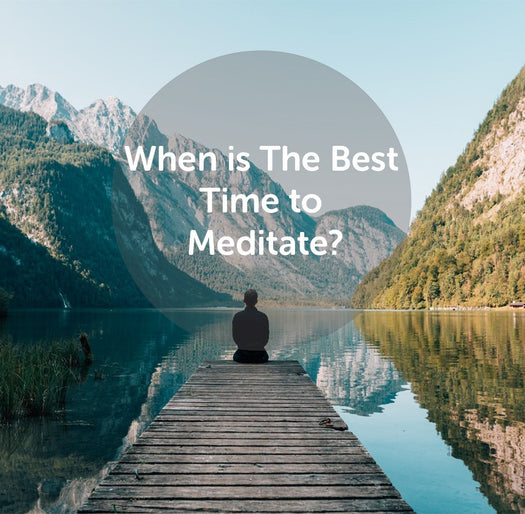What is the most effective time of the day to meditate?

How often have you said to yourself: “I’d love to start meditating but I just don’t have the time!”
It’s easy to look at images of peaceful people sitting in green fields and think to yourself: “That’s not me! I don’t even know where my closest meadow is!” If you find yourself struggling with starting to meditate, maybe you just can’t find the right time to start.

The truth is, there are as many different times to meditate as there are minutes in a day. Some people prefer to meditate in the morning before work, or before bed, or even during the day. Here are some advantages you may not have considered when trying to find the right time of day to meditate.
Fun fact: based on the collective meditation sessions performed by our Muse community the most popular times to meditate are 7:00 am, 6:00 am, and 10:00 pm!
Spoiler Alert: There is no “best time” to meditate
“What is the best time to meditate? The real answer is the time that works for you,” says Muse co-founder Ariel Garten. She says it’s important to remember that meditation is a practice and the most important thing is to find a time that allows you to meditate every day.
Whatever time you choose–morning, day, after work, or before bed–stick with it. “Meditation is amazing,” Ariel says, “but only if you do it and do it regularly!”
Watch the full interview here:
Morning Meditation
1. Morning meditation gives you clarity for your day. Waking up to an alarm can be jarring and set you off on the wrong foot. Taking five, ten, or twenty minutes to center yourself upon waking shakes out the cobwebs of the night and can better prepare you to face the challenges of the day.
2. Take advantage of a quiet house. For families, mornings can be chaotic. The house can be a whirlwind with everyone running around getting ready. If you rise before anyone else, you can take some time to prepare for your day without the chaos of breakfasts, showers, and bus pickups swirling all around you.
3. Get those endorphins! Studies show that meditation releases a stress-fighting hormone. Ever have a bad dream ruin your day? Or wake up already thinking about work-related stress? Meditating can ease your pre-work stress and get you ready to face the day.

Daytime Meditation
1. Take a meditation break instead of a coffee break. Be honest: do you really need a coffee, or do you just need to walk away from your desk? Instead of heading for the coffee machine, find a quiet spot where you can focus on your breathing for a few minutes. If you’re able to get a room to yourself, great, but if not, just taking the time to focus on yourself has its benefits.
2. It can be as long or short as you like. Ultimately, meditation is nothing more than taking the time to focus on your breathing. While it is preferred to do this while sitting in a quiet place, it can really be done anywhere. The skills learned while meditating can even be applied in the middle of a conversation. We are often told to “take a deep breath” when faced with a stressful situation: this is no different from taking a deep breath during meditation practice.
3. Find a guided meditation class. If you work in an office building, there may be meditation classes provided right where you work. Many office buildings have gyms and yoga classes, and some are now offering meditation and mindfulness classes throughout the day.

After Work Meditation
1. Make sense of your day. This is perhaps the most obvious advantage of waiting until after the day is done to meditate. Meditation gives you the time to take all those thoughts, worries, triumphs, and confusion from the day and try and make sense of them.
2. Put a barrier between work and home. Work-life balance can seem like such an impossible problem to solve, it’s practically become a meme. If reading this study, which found that work satisfaction dips after working more than 40 hours a week, makes you think “Well, duh!” then it might be time for some after-work meditation practice. Taking time for yourself after work can separate your work and home life. Try focusing on your breath during your commute–it’s not like you can read emails while you’re driving anyway!

Before Bed Meditation
1. Bring a sense of calm to the end of your day. If you’re one of those people who just pass out as soon as you hit the pillow, congratulations, but many people struggle with quieting their minds for sleep. Meditation can be a great help in bringing calm into the bedroom at the end of a workday, or even a day off. Even if you are able to pass out right away, it can be helpful to meditate on the day’s events and create a sense of calm that can last into the night.
2. Plan out your tomorrow. Meditating can help make sense of the day you just had, but what the day you’re about to have? Taking the time to plan out tomorrow while you focus on your breath can make big tasks seem more manageable, and makes it easier to accomplish larger tasks. Going into the next day with a game plan already formed gives you a leg-up on your daily challenges.

